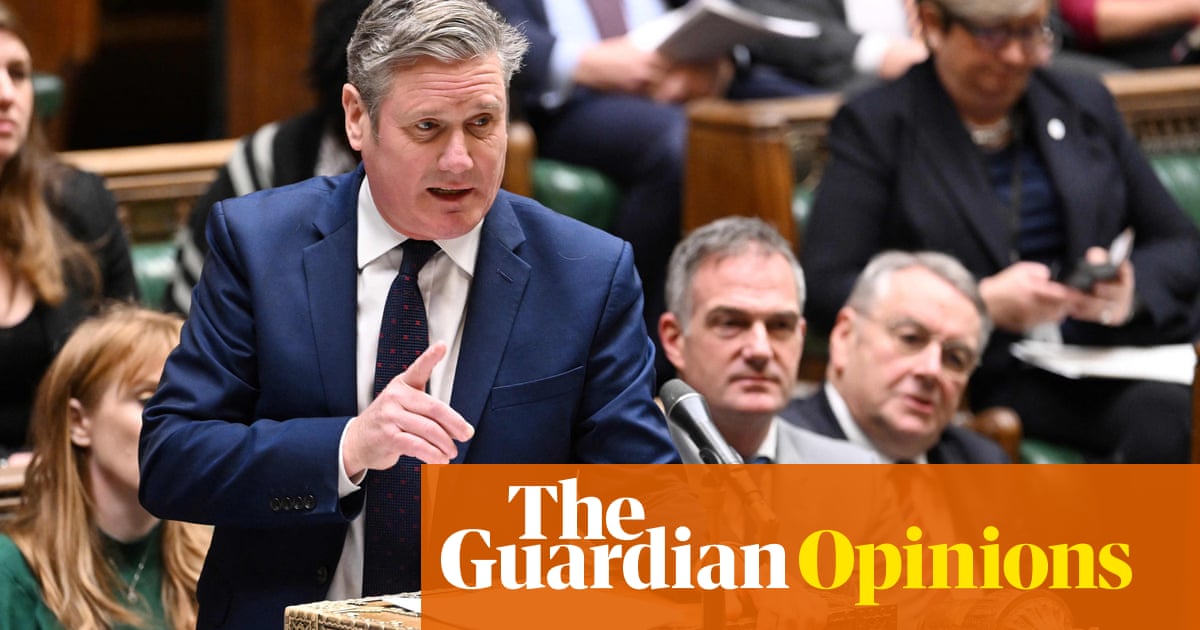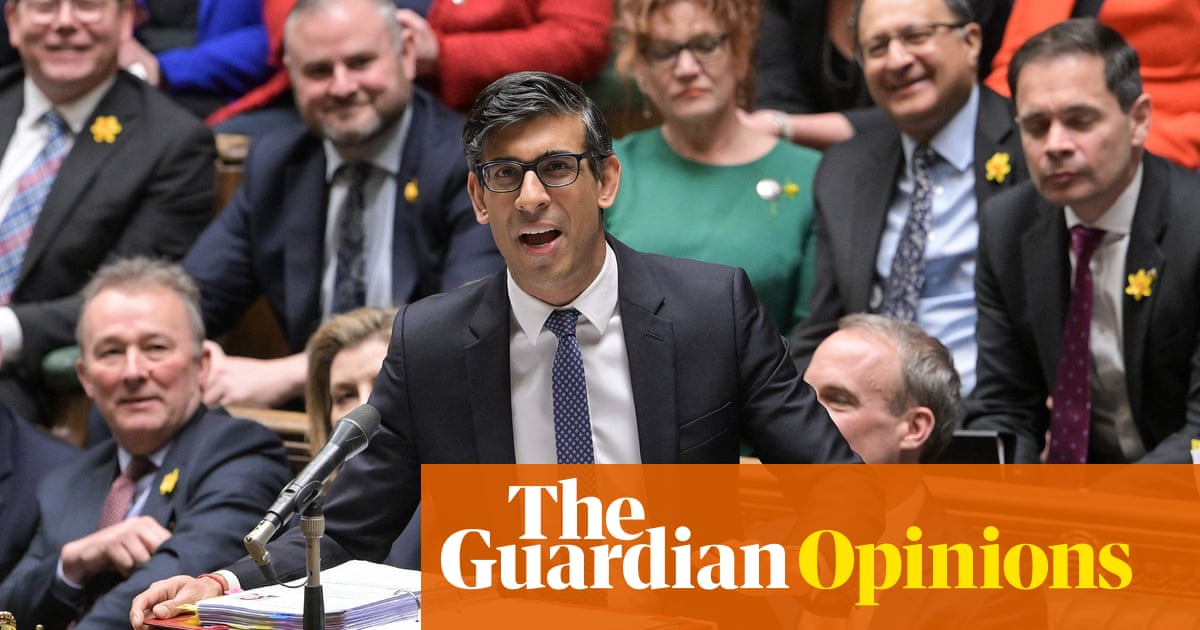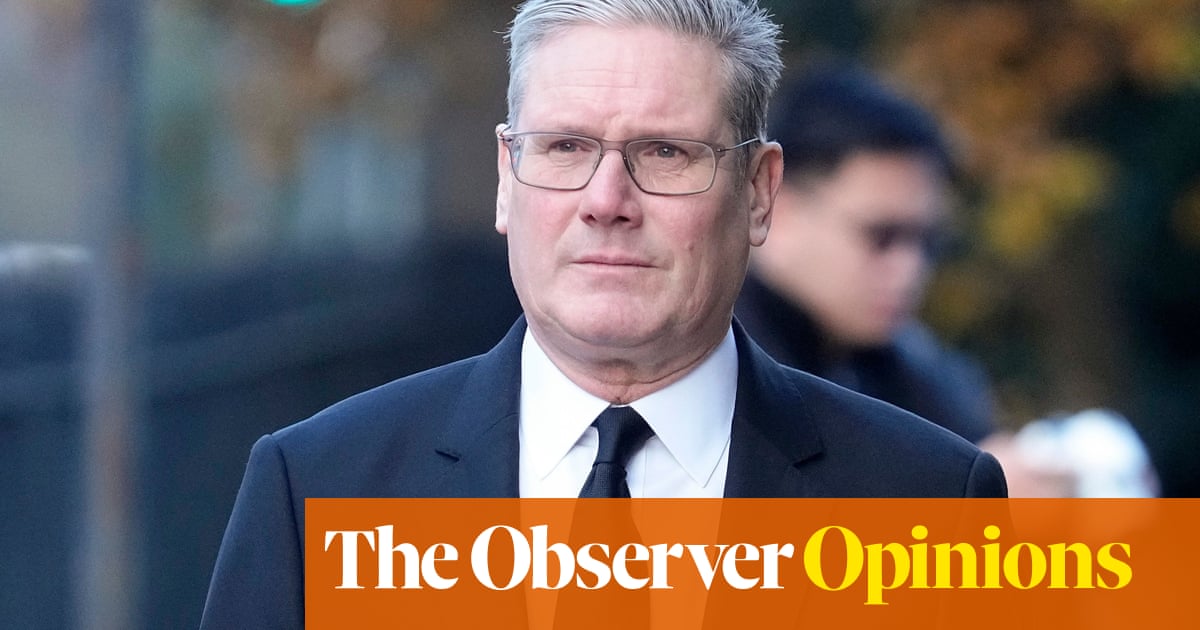
The bookies will now give you even money on Labour forming a majority government at the next general election. So what kind of government would Keir Starmer’s Labour be?
For the first two years of his leadership, this was a difficult question to answer. The party’s strategy focused almost entirely on presenting Starmer as neither-Boris-Johnson-nor-Jeremy-Corbyn. Policy barely came into it – except to jettison flagship Corbyn commitments such as nationalisation. So policy-phobic did Starmer appear that Radio 4’s Dead Ringers portrayed him as constantly astonished that it was possible to have any opinions at all.
The view that no one knows what Starmer stands for still appears to be widely held. But in reality it should not be any more. Over the past few months Labour has adopted a host of policy positions, particularly on the economy. And they are considerably more radical than Starmer’s critics might have expected.
Not that you would know this from the political demeanour of the leader or his shadow chancellor, Rachel Reeves. Both have gone out of their way to emphasise Labour’s “fiscal discipline”: no spending pledges without showing how they will be paid for, a commitment to bringing down the national debt. Business leaders have been assiduously wooed.
But look at the policies themselves, and, even where not yet wholly defined, they are far from timid.
Take Labour’s fiscal stance. Reeves promises to abide by the “golden rule” that in normal circumstances governments should borrow only for investment. But that still allows for significant capital spending. Labour has pledged £28bn a year for climate action this decade – a larger annual figure than promised by Corbyn and John McDonnell. Under Ed Miliband’s stewardship, Labour pledges to achieve a net zero power system by 2030, establish a new publicly owned energy generation company and drive a 10-year, £60bn energy efficiency programme to fix Britain’s leaky homes and buildings, creating tens of thousands of new jobs and apprenticeships across the country.
Aiming at the same time to tackle the UK’s abysmal productivity rate (considerably lower than that of Germany, France and the US) and a persistent trade deficit over the last 25 years, made worse by Brexit, Labour has recently published a new industrial strategy. For the first time this will focus not just on high-innovation sectors such as aerospace, but on the “everyday economy”, such as retail, transport, light manufacturing and services, seeking to raise productivity – and therefore wages – in the sectors in which most people work. Labour plans to use one of the very few genuine “Brexit freedoms” to target government procurement on UK companies. It wants to reduce the UK’s import bill and to strengthen the resilience of the economy in sectors such as food, health supplies and medicines, which were badly exposed in the pandemic. Reeves has further committed to establishing a national wealth fund to take equity stakes in Britain’s successful new businesses.
Labour will also introduce significant economic devolution to ensure that the benefits of its industrial strategy flow to all parts of the country. Commentary on Gordon Brown’s recent report on constitutional reform focused mainly on abolition of the House of Lords. But arguably Brown’s more significant proposals are for local authorities to be given major economic powers and budgets to drive economic development across England, with new powers also devolved to Scotland, Wales and Northern Ireland. Starmer has promised to consult on Brown’s proposals, but with wide support among Labour council leaders and mayors, it is hard to see them being rejected.
But will Labour’s “fiscal responsibility” inhibit its spending on public services? Perhaps not as much as some fear. Reeves has understandably been reluctant to say she will raise taxes. But she has also made clear her view that the unequal tax treatment of wealth is wrong. That suggests that Labour wants to equalise the tax rates paid on capital gains and dividends with those on wages, and possibly to charge national insurance on investment income. Reeves has already said Labour would abolish non-dom status. These measures would raise around £26bn a year, which would go some way to funding the party’s commitments to the NHS, social care and childcare – the social infrastructure on which the economy depends.
At the same time Labour is committed to raising the minimum wage to the level of a proper living wage. Its package of workers’ rights and protections includes banning zero-hours contracts and bogus self-employment, and ensuring all workers from day one are entitled to sick pay, paid holidays and parental leave. It pledges to negotiate fair pay agreements with employers and trade unions, setting a floor to wages and working conditions in key sectors. Experience in other countries suggests that such agreements will not only raise workers’ wages, but reduce gender inequalities and help manage the difficult processes of technological change and productivity improvement. They would almost certainly reduce the likelihood of strikes.
And it is not quite true that Labour is now opposed to nationalisation. It has promised to take the rail operators back into public ownership when their franchises expire.
All told, Labour now has a solid economic policy, and one which certainly cannot be characterised as “New Labour”. Its plans for industrial strategy, collective bargaining and workers’ rights are well to the left of anything done by Tony Blair and Brown. Its climate and energy programme is more radical than Miliband’s in 2015. Indeed, excepting nationalisation, it is not too far from the economic prospectus set out in Corbyn’s 2017 manifesto.
We should not be surprised at this. There is a prevalent myth that Labour only wins from the centre. But this is a misreading of the party’s postwar history. New Labour was able to win from the centre because the economy was in the middle of a long boom, enabling the party to redistribute the fruits of growth to public services and poverty reduction.
But when the economy is doing badly, Labour has always moved to the left, seeking more active interventions and structural reform. History provides a good guide as to when this move leads to electoral victory. It is at those epoch-shifting moments when Labour’s leader – Clement Attlee in 1945, Harold Wilson in 1964 – was able to present a progressive vision of the future: to show that the party’s economic programme was necessary to meet the profound challenges of the age.
Labour’s economic programme is not yet as radical as theirs. But it is a serious response to the UK’s current economic weakness. Can Starmer follow history’s example?
Michael Jacobs is professor of political economy at the University of Sheffield












